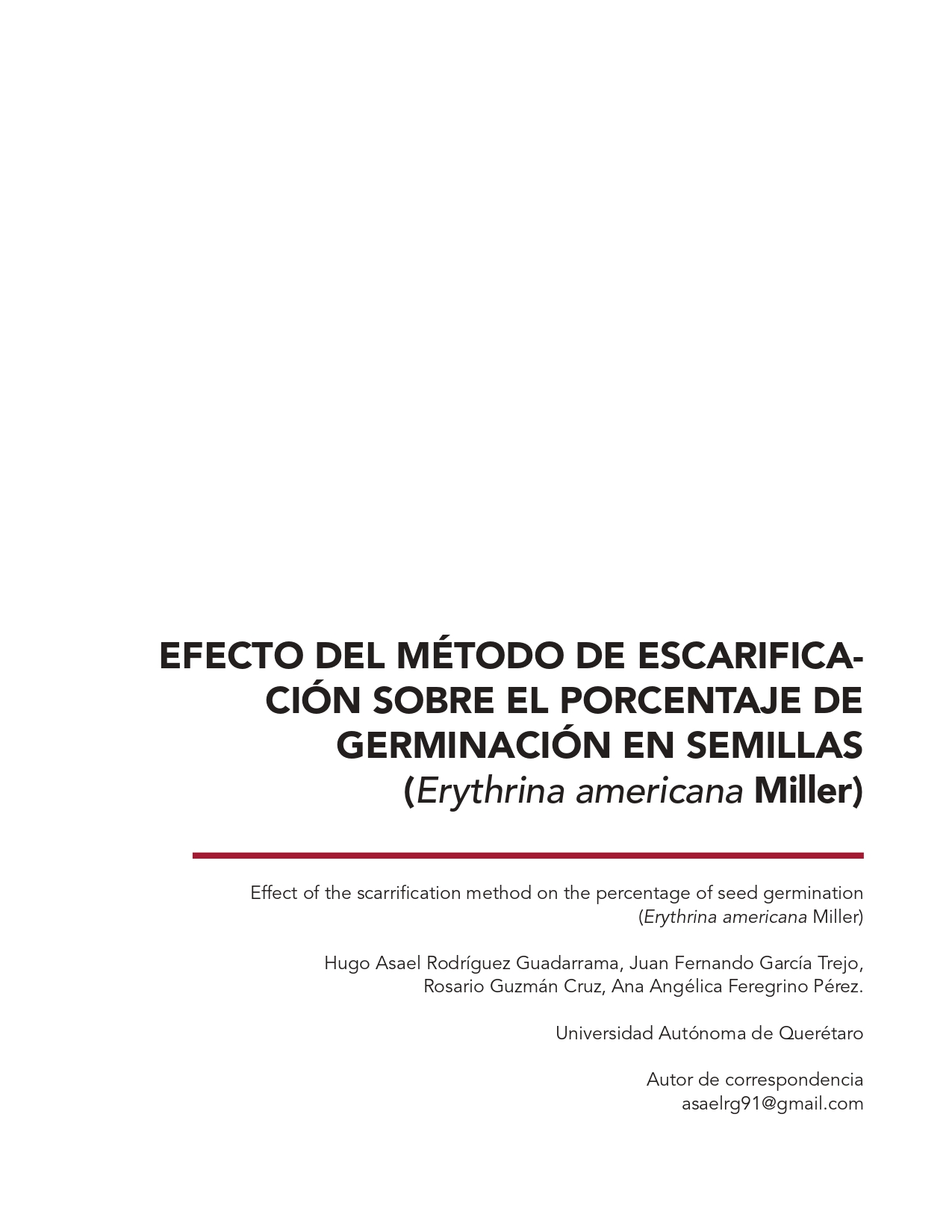Abstract
The seeds of the plant Erythrina americana Miller have a very hard cover and; scarification methods, which vary among different species, are required to achieve a high and efficient germination in a short period of time. The objective of this work was to use scarification methods such as: mechanical, scraping with an abrasive surface, thermal, immersion in hot water at 35 °C and 60 °C for 30 and 70 min, mechanical-thermal, application of heat with an incandescent burner or soldering iron for 2 and 5 seconds, and chemical, 98% sulfuric acid for 30 min, treatments. The treatments at 35 °C during 30 and 70 minutes showed the highest percentage of germination with 42 and 52%, respectively, 7-17% more than the control group, while the treatments at 60°C in both times 30 and 70 min caused a decrease on the percentage of seed germination. The methods with soldering iron in both times 2 and, 5 seconds and, scarification with abrasive surface obtained the lowest percentages of seed germination; 13 and 23% less than the control, respectively. In addition, these treatments caused the death of more than 70% of seeds. The chemical treatment did not present differences with the control group. In conclusion, exposure times for thermal and chemical scarifications may have an advantage for optimization on seed germination for this plant species, both in economic costs and biological properties. More studies are necessary to reach a high percentage on germination and survival of seeds and good growth of seedlings for use in agroforestry systems that maximize the cultivation and propagation of E. americana Miller in our country.
This work is licensed under a Creative Commons Attribution-NonCommercial 4.0 International License.

